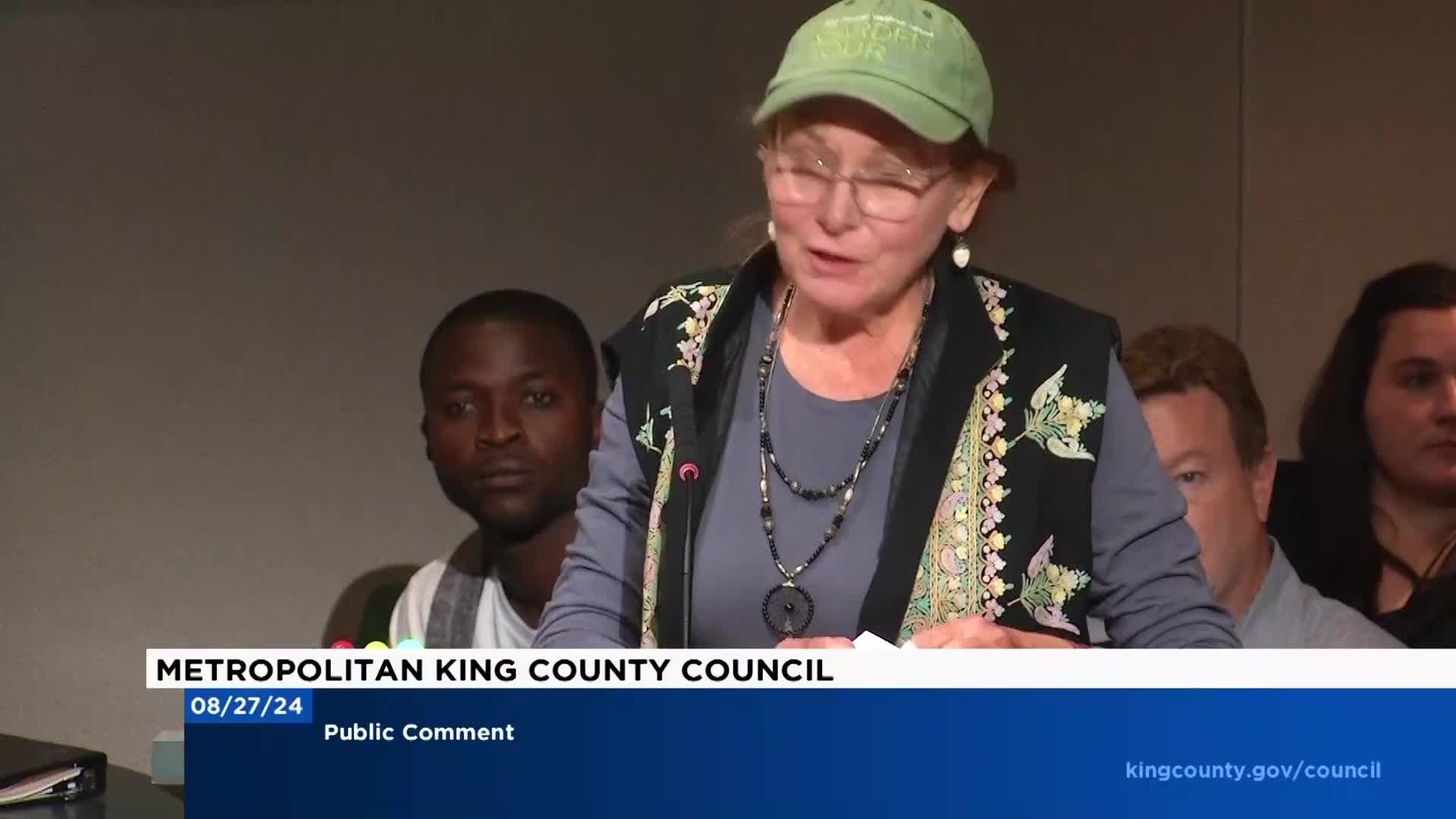Residents demand transparency in Vashon Island zoning changes
August 27, 2024 | King County, Washington
This article was created by AI summarizing key points discussed. AI makes mistakes, so for full details and context, please refer to the video of the full meeting. Please report any errors so we can fix them. Report an error »

During a recent government meeting, community members from Vashon Island voiced strong objections to proposed changes in zoning regulations that they believe could drastically alter the character of their rural community. The discussions centered around a comprehensive plan that would rezone areas from rural to urban/suburban classifications, allowing for increased density and the establishment of facilities such as mental health services and micro-shelter villages.
One resident, who previously served on a citizens advisory committee, criticized the current process as \"top down,\" contrasting it with their past experiences of community engagement. They highlighted specific amendments that would permit zoning changes from R-12 to R-48, raising concerns about the implications for local infrastructure and services.
Another speaker, Lynn Meherrin, urged council members to visit Vashon Island to engage directly with residents, particularly regarding the proposed rehabilitation center, which had been previously miscommunicated as not being on the agenda during a prior meeting. She emphasized the need for evening meetings to accommodate commuters.
Katie Ballard expressed frustration over misinformation circulating within the community and alleged that a special interest group was attempting to silence dissenting voices. She called for transparency from the council regarding plans that could affect the island's population, particularly concerning the potential relocation of unhoused individuals.
Victoria Barr echoed concerns about the unique challenges faced by Vashon Island, such as limited healthcare and unreliable ferry service, arguing that the proposed zoning does not take these factors into account. She urged the council to reconsider a one-size-fits-all approach to zoning that may not be suitable for the island's specific circumstances.
In contrast, Alex Nevias, representing legal counsel for youth and children, advocated for the continuation of the Clark Children and Family Justice Center, emphasizing the need for secure facilities for youth offenders. He urged the council to adopt amendments that would support the center's operations, framing it as a necessary measure for public safety.
The meeting underscored a significant divide between community members advocating for local needs and the council's proposed changes, highlighting the complexities of urban planning in rural settings. The council's next steps remain to be seen as they navigate these contentious issues.
One resident, who previously served on a citizens advisory committee, criticized the current process as \"top down,\" contrasting it with their past experiences of community engagement. They highlighted specific amendments that would permit zoning changes from R-12 to R-48, raising concerns about the implications for local infrastructure and services.
Another speaker, Lynn Meherrin, urged council members to visit Vashon Island to engage directly with residents, particularly regarding the proposed rehabilitation center, which had been previously miscommunicated as not being on the agenda during a prior meeting. She emphasized the need for evening meetings to accommodate commuters.
Katie Ballard expressed frustration over misinformation circulating within the community and alleged that a special interest group was attempting to silence dissenting voices. She called for transparency from the council regarding plans that could affect the island's population, particularly concerning the potential relocation of unhoused individuals.
Victoria Barr echoed concerns about the unique challenges faced by Vashon Island, such as limited healthcare and unreliable ferry service, arguing that the proposed zoning does not take these factors into account. She urged the council to reconsider a one-size-fits-all approach to zoning that may not be suitable for the island's specific circumstances.
In contrast, Alex Nevias, representing legal counsel for youth and children, advocated for the continuation of the Clark Children and Family Justice Center, emphasizing the need for secure facilities for youth offenders. He urged the council to adopt amendments that would support the center's operations, framing it as a necessary measure for public safety.
The meeting underscored a significant divide between community members advocating for local needs and the council's proposed changes, highlighting the complexities of urban planning in rural settings. The council's next steps remain to be seen as they navigate these contentious issues.
Don't Miss a Word: See the Full Meeting!
Go beyond summaries. Unlock every video, transcript, and key insight with a Founder Membership.
✓
Get instant access to full meeting videos
✓
Search and clip any phrase from complete transcripts
✓
Receive AI-powered summaries & custom alerts
✓
Enjoy lifetime, unrestricted access to government data
30-day money-back guarantee

